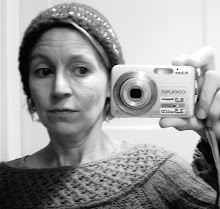 Language is a slippery little sucker. We rely on it so much to communicate between our loved ones, colleagues, total strangers and idolise those who can manipulate it into poetry and song. So what happens when we are in need of a kind word of solace to a grieving friend? Words, literallly, fail us. Faced with the situation numerous times in my life I have yet to find the answer to what, surely, must have been thought out by a few of the valued thinkers of our times; what to say to the bereaved. Sympathy cards are united in their lack of originality and feeling; 'thinking of you' or 'with sympathy' just about covers the whole spectrum, alongside a floral design in muted colours. Poetry can come close to encapsulating the heave of emotion we feel for ourselves or another in the throes of grief; Auden's little number, now forever connected to 'Four Weddings and a Funeral' for me, is a true outline of loss, but a little lenghty for anything other than a formal eulogy. My family has always leaned towards Dylan Thomas's 'Rage, rage against the dying of the light'; the anger of the recently bereaved finding fuel in the hostile words; fighting against the inevitable.
Language is a slippery little sucker. We rely on it so much to communicate between our loved ones, colleagues, total strangers and idolise those who can manipulate it into poetry and song. So what happens when we are in need of a kind word of solace to a grieving friend? Words, literallly, fail us. Faced with the situation numerous times in my life I have yet to find the answer to what, surely, must have been thought out by a few of the valued thinkers of our times; what to say to the bereaved. Sympathy cards are united in their lack of originality and feeling; 'thinking of you' or 'with sympathy' just about covers the whole spectrum, alongside a floral design in muted colours. Poetry can come close to encapsulating the heave of emotion we feel for ourselves or another in the throes of grief; Auden's little number, now forever connected to 'Four Weddings and a Funeral' for me, is a true outline of loss, but a little lenghty for anything other than a formal eulogy. My family has always leaned towards Dylan Thomas's 'Rage, rage against the dying of the light'; the anger of the recently bereaved finding fuel in the hostile words; fighting against the inevitable. And inevitable it is, sadly. Maybe that is why it is so hard to express when the feeling is so huge, but the event itself so commonplace - it will happen to us all repeatedly in the form of bereavement before we take our own turn. I read a good bit of the Tibetan book of Living and Dying, which made a great deal of sense at the time although some of the ritual aspects come across as pretty far out in our Western society. It does at least come from the standpoint of the inevitability and unavoidable nature of the beast; once this is accepted, maybe the words come easier, or are not necessary.
I think our language does fail us on this one, and fail us totally. We are better to express our co-feeling with actions and thoughts than clumsy sentences.
The power of the image can be painfully strong at such times; I declined to see the photo of my recently-ex boyfriend's sister's still born baby because I knew the image would burn in my mind and take on associations far beyond the simple fact of its existence. Tangled in guilt and complicated emotion, that picture would haunt me today had I let it - I am glad I let that one alone. So the picture of a lost person or animal can cause the grief to burn brighter; the two dimensional image mocking the lack of a physical presence and serving as a reminder of the still open wound. I am not convinced that it is healthy, for me at least, to surround myself in photos of the departed. I remember them well and gently without an image to burn into the backs of my eyes.
A friend lost her dog today and I was amazed at how, yet again, I was struck dumb in the moment of need. Words of support, of comfort - what could these be? What leaves me strenghtened by the experience is the knowledge that, without words, she understood that I understood the immensity and hopelessness of her feeling, and shared in her pain. That seems important to me.


No comments:
Post a Comment